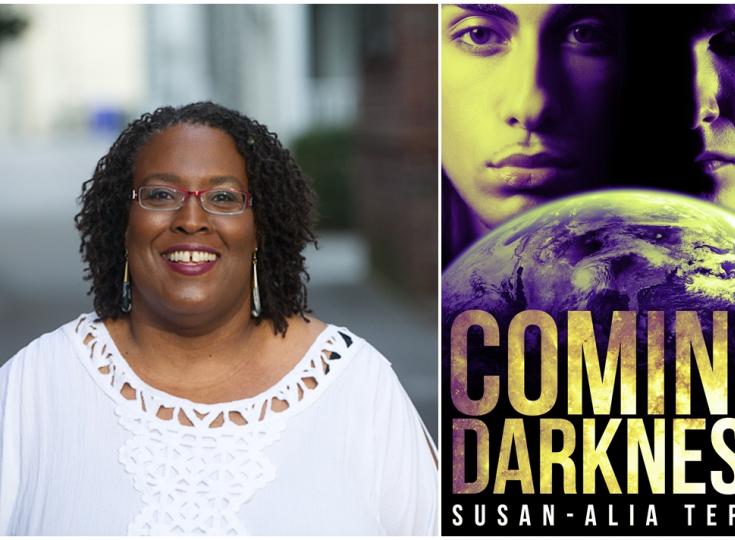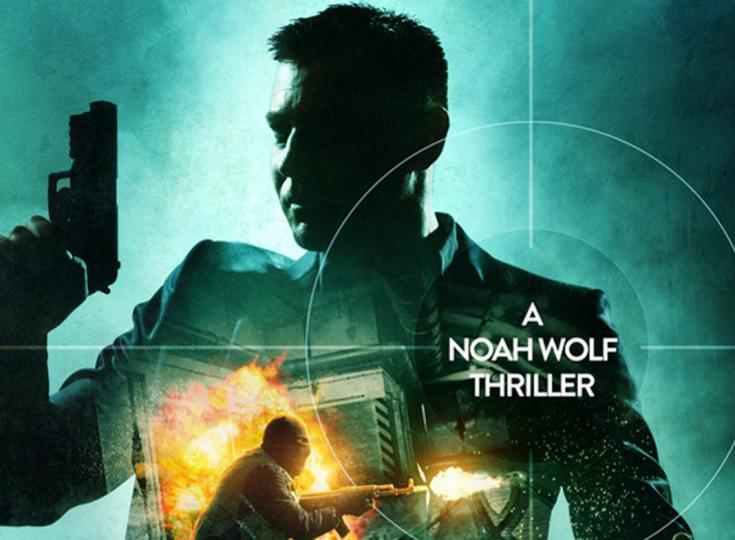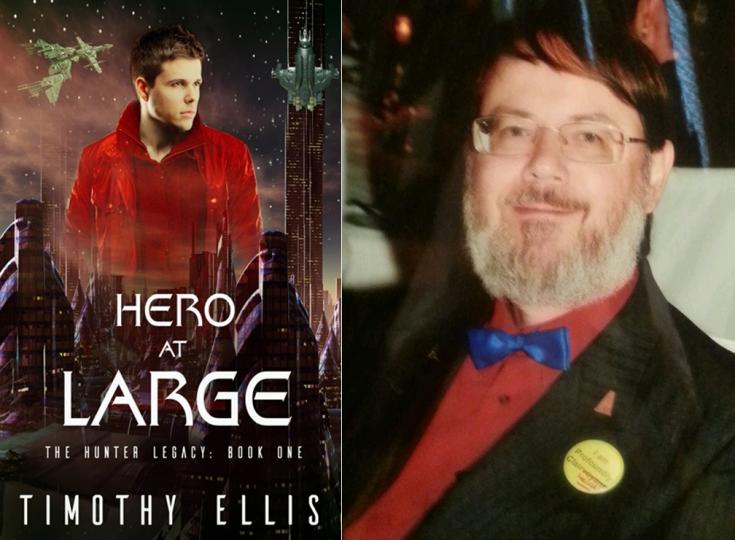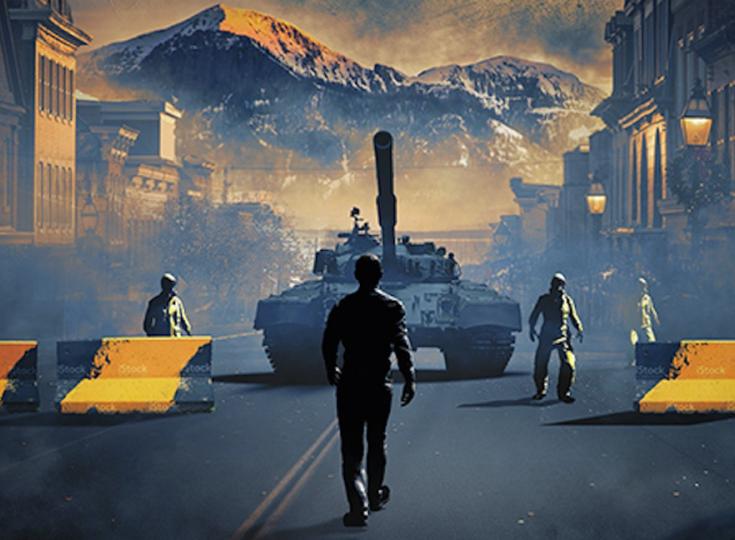Adam Bender - Dystopian Western about Lawlessness in Near-future America
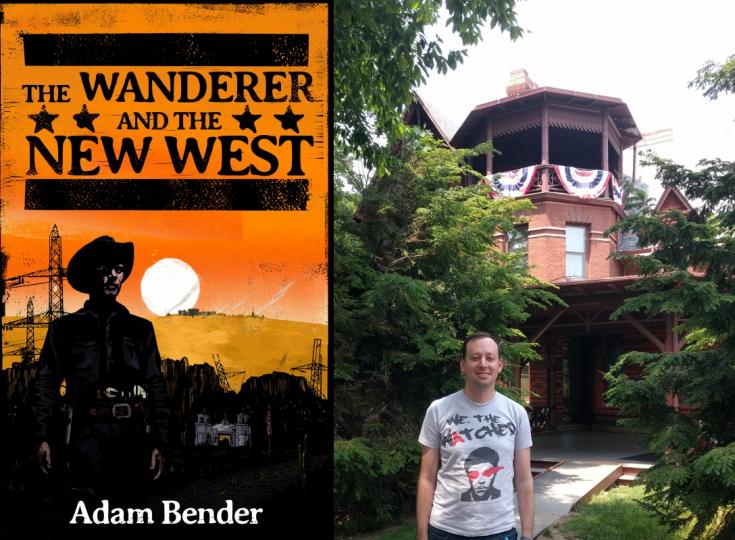
Adam Bender is an award-winning journalist and author of speculative fiction that explores modern-day societal fears with a mix of action and romance. Adam's latest novel is The Wanderer and the New West - as our Author of the Day, he tells us all about it.
Please give us a short introduction to what The Wanderer and the New West is about.
A rogue vigilante seeks redemption in a lawless, near-future America that fully protects the rights of armed citizens to stand their ground. When a marksman known as the Wanderer opens war against injustice in the state of Arizona, his violent actions attract the attention of journalist Rosa Veras, writer of a subversive blog about America’s return to the Wild West.
What inspired the story? Was there anything in particular that made you want to write this book?
After writing two dystopian novels about government surveillance in a totalitarian state, I wanted to go in the opposite direction and write about a possible future where government had withdrawn completely from people’s lives and stopped enforcing the laws. With horrific gun shootings regularly in the news, and yet complete inertia by Congress to do even small acts of regulation, it seemed to me that this no-government dystopian future could be the perfect setting to take on gun issues.
Why a dystopian western? What drew you to this setting?
As I was thinking about a dystopian future where people used guns to take the law into their own hands, it occurred to me that what I really was writing was a Western! I’ve always loved old Western movies like High Noon, not to mention sci-fi takes like West World. Westerns aren’t as popular as they once were, but I wondered if it might just be that people had a hard time relating to stories typically set in the past. So, I took some of my favorite elements of the genre, including heroes seeking redemption, mean industrial tycoons and drunken saloon brawls, and brought them into a near-future America that’s not so far a stretch from today’s society.
In your day job as a journalist, you cover a wide range of topics. How has this influenced your fiction writing?
I’ve spent most of my career covering the intersection between technology and politics, including writing about court cases, legislation and state and federal regulation of the internet and telecommunications. It keeps me up on the latest tech trends and I’m able to bring elements of that into my fiction. In The Wanderer and the New West, characters wear smartwatches and augmented-reality eyepieces, and skilled hackers use their talents to take control of autonomous vehicles and other internet-connected technologies. Also, probably because I’m a reporter, I tend to get into First Amendment issues about free speech and freedom of the press!
Tell us more about Rosa Veras. What makes her so special?
Rosa’s got this old-school image of reporters as investigators who expose truth and can make a real difference. Think Woodward and Bernstein from the Watergate scandal. The problem is that Rosa works at a newspaper that’s not interested in that kind of reporting. Wanting to go her own way, Rosa decides to start an anonymous blog called “The New West.” However, she learns quickly that writing the truth can have difficult consequences.
Do you think future America is in any danger of turning into the world your book presents?
When I write dystopian stories, I try to present an extreme possibility of what might happen if we head down a certain path. I do think we’re on that path in some ways, but at the same time, it’s not too late for us to turn back and go a different way. Believe it or not, I generally think of myself as an optimist!
The gun control debate is a central theme in The Wanderer and the New West. Why did you find this an important issue to explore?
Terrible shootings happen so often these days that we’re almost getting desensitized to them. The problem is that gun control is such a polarizing issue in the U.S., with two sides who are unwilling to compromise. I’ve always felt fiction is a great way to connect with people no matter what their beliefs. For whatever reason, fiction readers don’t immediately put up walls when presented with a tough issue.
In my novel, I try to present a balance of arguments and show that there are gray areas. The Wanderer loves guns and has no problem using them for what he believes are the right reasons. Rosa has been personally affected by guns and thinks there should be limits. They have some interesting discussions about those beliefs, and I hope my book also starts conversations between readers and their friends and families.
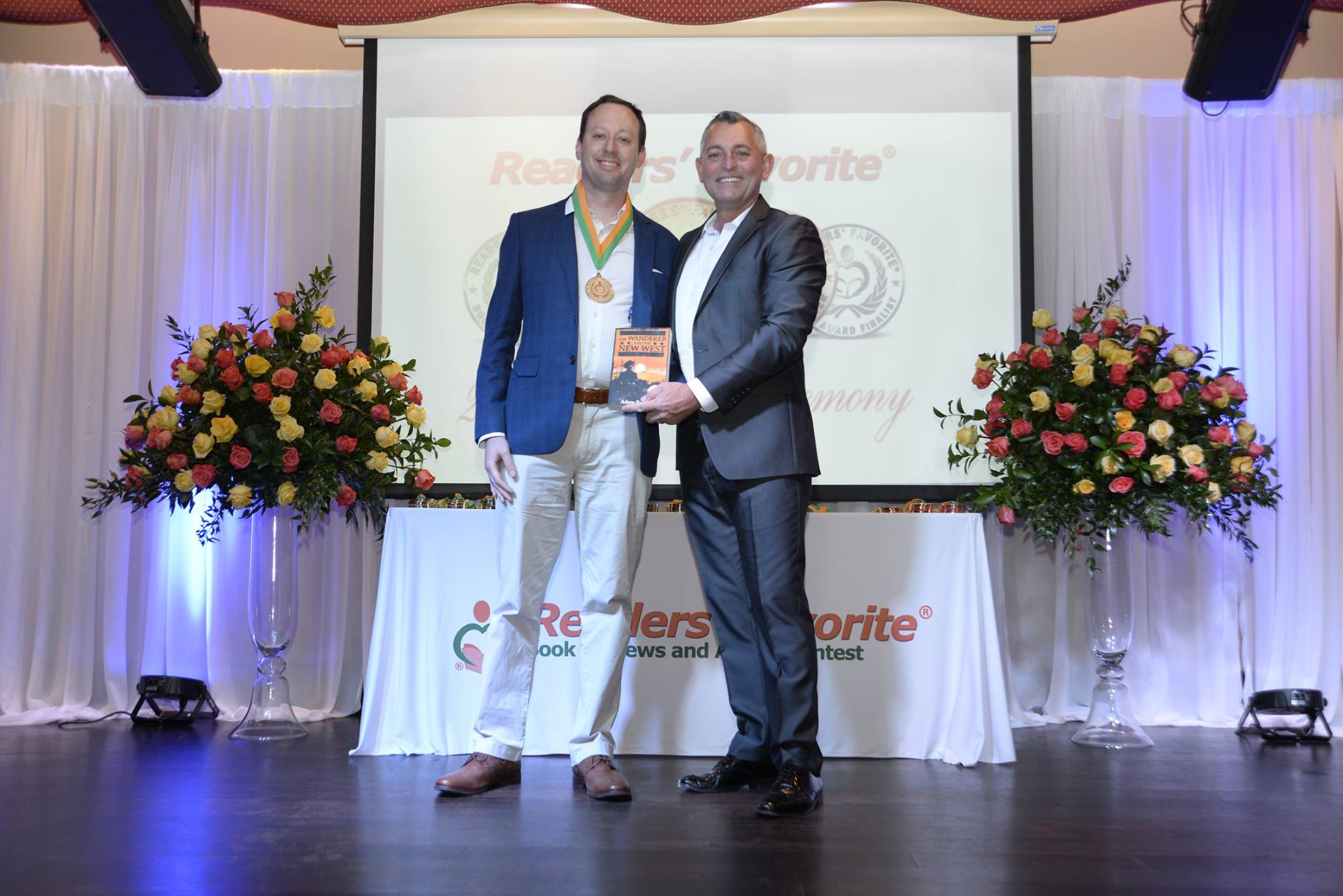
The story is fast moving, making the book hard to put down - how did you pull this off?
If you’re going to write a western, it’s got to be full of action and adventure. I learned a lot about pacing fights and chases from comic books and pulpy action movies like Kill Bill. I also like to use different perspectives and have more than one narrative going on at once. As soon as one slows, I can switch to another character just as things are heating up.
Which of your characters has been the most challenging to write for?
Seven, who is the protagonist of my first novel, We, The Watched. The reason I say that is he starts that novel as a complete blank slate with no memory of who he was before. It’s a good device in that he experiences everything in the world fresh, but at the same time I had to keep him entirely in the present – no flashbacks or anecdotes to give a better sense of his background. As I’ve grown as a writer, I’ve been spending more time building characters’ backstories, which gives me a deeper well of material from which to draw.
Is there an underlying message you wish to relay about basic human nature through your characters?
People like to split into factions, but that division weakens us. The characters in my novels seem to do the best when they realize we’re better united.
To what degree do you believe authorial intent determines how a work should be interpreted?
I write for my readers’ enjoyment, and I’m happy with whatever they take from it! As a journalist, I’m always trying to objectively present opposing views, and that influences my fiction writing. I’m always interested to hear how people with different backgrounds interpret the same story.
Do you have any interesting writing habits? Plotter or pantser, favorite writing spot, sources of inspiration?
I tend to get ideas for stories – a scene, a character, even a throwaway line of dialog – while I’m out and about. Sometimes it even happens after I’ve gotten into bed and turned out the lights. I keep Evernote on my phone and a notebook on the nightstand so I can quickly jot these ideas down before they vaporize into the ether. I also often bounce ideas off my wife, and she’s great at rejecting the stupidest ones.
What are you working on right now?
I'm nearly finished the first draft of my next novel: Utopia PR. It’s about a crisis public-relations manager for a dystopian government who wishes he had a little more work-life balance. While still in the speculative fiction genre, it's much more of a satire than my previous books. I've always tried to include laughs, but have really gone all in this time, and I'm having a lot of fun!
I’ve also got some ideas for a sequel to the The Wanderer and the New West, and I hope to work more on that soon.
An audiobook version of The Wanderer and the New West is in development, and I hope to release it this summer. See my recent blog post for more details.
Where can our readers discover more of your work or interact with you?
You’ll find information on all my novels and short stories at my website, WatchAdam.blog. You can sign up to my newsletter there for updates, or you can follow @WatchAdam on Twitter or Instagram. I’m an indie author, so you can really help me out by leaving honest reviews on Goodreads, Amazon or wherever you buy books!
